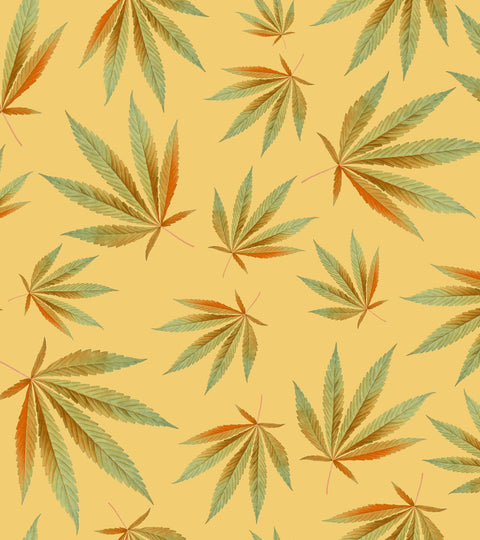What is Delta-8-THC: Separating The Facts From The Hype
Delta-8-THC is a cannabinoid present in the Cannabis sativa plant. It has recently grown in popularity as Delta-8-THC products have started to penetrate the market.
Introduction
If you’ve browsed the cannabis blogosphere in recent months, then you’ve probably seen a lot of discussion about Delta-8-Tetrahydrocannabinol.
Roger Adams and his colleagues at the University of Illinois achieved the first partial synthesis of Delta-8-THC back in 1941.
This compound has now reemerged as a potential alternative to more well-known cannabinoids, like CBD or Delta-9-THC.
Is Delta-8-THC legal to buy? Does Delta-8-THC get you high? Should I give it a try?
Read on and we’ll tackle all of your questions in a deep dive.
What Is Delta-8-THC?
If you're not one for spoilers and skipped the summary, you may be wondering what is Delta-8-THC exactly.
Delta-8-THC is one of at least 144 cannabinoids found in cannabis. It is usually present in small quantities, although higher Delta-8-THC content sometimes occurs naturally.
The Delta-8-THC that’s available for consumers is typically converted from other cannabinoids, most often from CBD. The method used for extracting Delta-8-THC is a wholly organic and natural process.
There are many ways to consume Delta-8-THC, including through the use of vaporizer cartridges, edibles, dabs, and flower.
Does Delta-8-THC Get You High?
Like Delta-9-THC, psychoactive effects are produced when you consume Delta-8-THC.
However, Delta-8-THC stimulates a less powerful “high” than Delta-9-THC. This makes it an attractive option for those who find traditional cannabis or cannabis-based products to be too overpowering.
What Is Delta-8-THC's Legal Status?
Unfortunately, Delta-8-THC occupies a legal gray area in the United States.
The 2018 Farm Bill stipulates that all cannabis that has 0.3% or less Delta-9-THC on a dry weight basis is hemp, rather than “marijuana.”
The 2018 Farm Bill also states that products derived from hemp are federally legal.
Since the vast majority of Delta-8-THC products available for sale are derived from hemp, U.S. law seems to indicate they should be legal products.
Although Delta-8-THC is legal at the federal level (as long as it’s derived from hemp), its legality varies on a state-to-state basis.
Some states, like Ohio and Maryland, have chosen to formally legalize all derivatives, isomers, and cannabinoids of hemp, excluding Delta-9-THC.
Other states, like Arkansas and Idaho, have banned the consumption and sale of Delta-8-THC.
Further complicating Delta-8-THC’s legal status is the Federal Analogue Act, a section of the Controlled Substances Act passed in 1986 during the war on drugs’ height.
According to this legislation, analogues of controlled substances are automatically classified as Schedule I narcotics. This means that they are subject to the greatest amount of restrictions, control, and penalties.
Some view Delta-8-THC as an analog to Delta-9-THC, and thus perceive that this cannabinoid should be classified as a Schedule I narcotic by the Drug Enforcement Administration.
Others argue that because hemp is legal in the United States of America and all derivatives from hemp are also legal, that Delta-8-THC that is derived from hemp is, by extension, legal as well.
One further complicating factor is that the process to make Delta-8-THC products—and CBD products as well—often involves temporarily spiking the Delta-9-THC content in hemp above the DEA’s 0.3% limit.
Depending on perspective, this may indicate that many seemingly legal hemp-derived cannabis products (including those based on Delta-8-THC) are actually illegal.
An additional challenge related to the DEA’s Interim Final Rule is the ambiguous nature of how it defines “synthetically derived tetrahydrocannabinols.”
According to the DEA, “all synthetically derived tetrahydrocannabinols remain Schedule I controlled substances.” Despite this definition, the DEA has not clarified the term “synthetic,” which has resulted in further confusion.
Lastly, the DEA has scheduled Delta-8-THC under the same drug code as “marihuana.” This furthers the perception that Delta-8-THC might be illegal.
In short, Delta-8-THC’s legality is murky at both the federal and state levels.
Who Should Use Delta-8-THC?
Here’s the big question: If you live in an area where Delta-8-THC is legal and available for sale, should you consume it?
Some of us seek novelty in our experiences, cannabis-related and otherwise. If that describes you, then you may want to give Delta-8-THC a try and find out the answer to the question "Does Delta-8-THC get you high?" for yourself.
In that situation, we suggest you track your experiences with our Cannabis Taster journal.
What if you use cannabis to manage medical conditions?
In that case, it’s important to be aware of the fact that Delta-8-THC is regarded as efficacious for several conditions, including nausea, pain, anxiety, and poor appetite.
Other cannabinoids can also treat these medical symptoms.
CBD and Delta-9-THC are effective against nausea.
CBD, Delta-9-THC, CBN, and CBC all have pain relieving properties.
CBD can treat symptoms of anxiety.
And Delta-9-THC is an appetite stimulant.
But if you feel that your symptoms are not fully managed properly by the use of these other cannabinoids, you may want to try Delta-8-THC.
You can track your response to this cannabinoid (or other cannabinoids) with our Patient Journal and adjust your regimen as appropriate.
Another reason why you may want to experiment with Delta-8-THC is if you experience unpleasant side effects from other cannabinoids or cannabis-based products.
If Delta-9-THC leads to anxiety, head fog, cottonmouth, red eyes, or other unpleasant side effects, then Delta-8-THC may provide you with the medical or stress-relieving benefits you seek without the unpleasant baggage.
Then, of course, there’s the price. Dispensary prices can be tough on many people’s budgets. Delta-8-THC products tend to be fairly inexpensive, a boon for any cash-strapped cannabis patient or enthusiast.
It is worth noting that if you are regularly drug tested, Delta-8-THC is not a solution.
Even if you eliminated all Delta-9-THC consumption for months in advance and switched exclusively to Delta-8-THC, you’ll still fail a drug test. This is because drug tests screen for the presence of THC and cannot distinguish between Delta-8 and Delta-9 THC.
Conclusion
Now that you know what is Delta-8-THC, are you ready to sample it? If so, we hope that your experience with this fascinating cannabis compound meets your expectations.

